By Tracy Record
West Seattle Blog editor
Tonight at 6 pm, Washington State Ferries will hold the second of two sessions of their fall systemwide online community meeting.
We watched the first session at 1 pm so you’d know what they’re covering, in case you’re undecided on attending.
Here are the panelists introduced this afternoon:
Bryn Hunter moderated. The first to speak was Steve Nevey, who’s been leading WSF for a year and a half. He said he set three strategic priorities at the start of his tenure and he feels they’ve “made great strides” toward achieving them. “We’re trending better by every metric (but) we still have a lot of work to do.” He said he’d proudest of a dramatic drop in cancellations related to crewing, attributed to hiring and training improvements.
Other numbers:
He then made way for the system’s second-in-command John Vezina. He showed the full tree of system leadership, saying they’re “laser-focused on making things better for our customers and our colleagues.”
Here’s how they’re doing that:
Vezina handed the baton to his successor as director of external relations, Jenna Forty. This summer, she said, ridership on the Triangle Route was up almost 9 percent, and its on-time performance improved in a big way, now up to 85 percent. Forty said vessel supply and stability remains a challenge but they’re doing what they can.
Next, David Sowers talked about his latest role, electrification-program director. He said WSF has embarked on an “unrivaled” program of building new boats and retrofitting existing ones.
He said M/V Wenatchee is now back in service full time after its conversion, with 864 batteries installed; the other two Jumbo Mark II ferry conversions remain on hold until after the World Cup. Meantime, the new ferries to be built on the East Coast will start arriving in 2030, with the other two of the first three to arrive annually after that.
He was the last planned speaker before Q&A. We’re just noting the ones of Fauntleroy-Vashon-Southworth interest:
-What about terminal support for electrification? They’ve got money to design and build one terminal system, money to design two more. The Triangle Route terminals were not mentioned as being in the early construction plans.
–What can WSF do about line-cutting? (The question was focused on the downtown terminal, but applied everywhere.) Vezina’s answer boiled down to “not much can be done, we know it’s frustrating, has even happened to me.” Another question later: Could camera enforcement be used? Vezina’s answer was mostly, “no.” Among other reasons, he said some people might have the right to “cut,” such as a medical emergency.
–General staffing update and “what’s being done to sustain it”? Nevey said a big concern a few years ago had been shortage of qualified captains, so they’ve invested time and money in training programs so crew can climb the ladder. They used to have unfilled captain’s jobs; now they have a waiting list for people seeking them. “We’re doing very well to set us up for permanent solutions, not just band-aids.”
–Will fares go up every year? And why so “dramatic(ally)”? Vezina explained that WSF doesn’t set its fares – fare policy is set by the Legislature, for starters. Pre-pandemic, he said, WSF had 80 percent farebox recovery (fares covering costs), but now is closer to 50 percent. There won’t be a new “how much WSF needs to make from fares” policy next Legislative session, but there will be one the following year.
–Fleet replacement. Nevey said they’re deciding whether they can keep their three oldest boats in service slightly longer, rather than retiring them as the new boats are completed.
–Passenger-only ferry service? The Legislature ordered WSF out of that business years ago. So counties (King and Kitsap, for example) are providing it. The state did a study last year and it’s being reviewed, but one question, “do you add new service when WSF still has significant needs?” Vezina observed, “Interesting policy conversation going forward.”
–Why can’t you pay WSF fares with ORCA cards? Vezina noted that their fares are so much higher than other transit services (particularly vehicle/driver) that it just doesn’t work with the way ORCA functions.
If you want to watch and/or ask questions at the 6 pm meeting (questions are all in writing, no live voice or video of participants), register here. WSF promises to post meeting recordings to that page too.

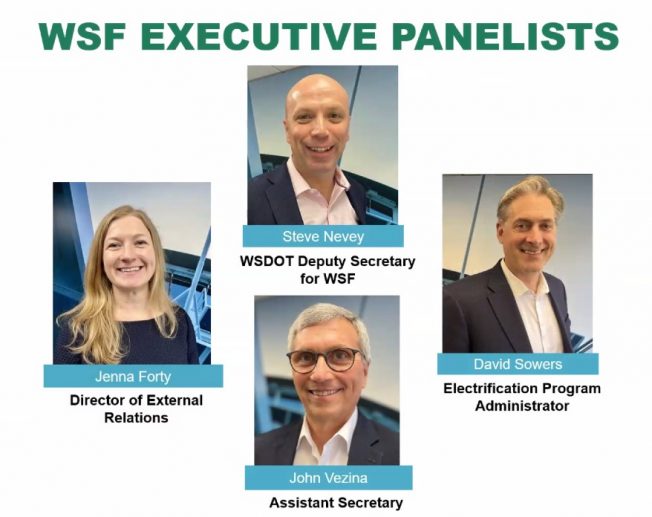
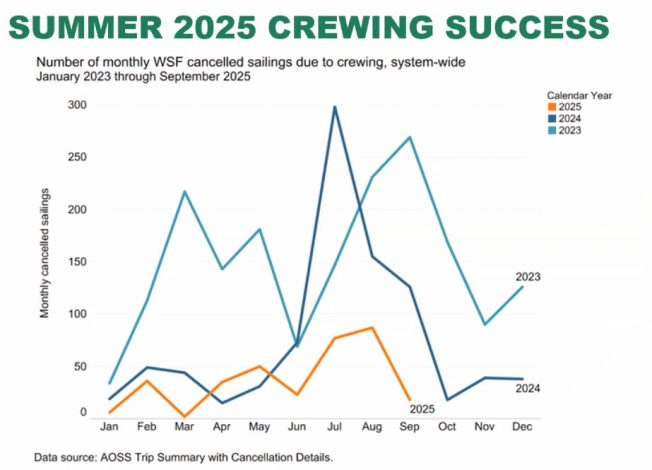
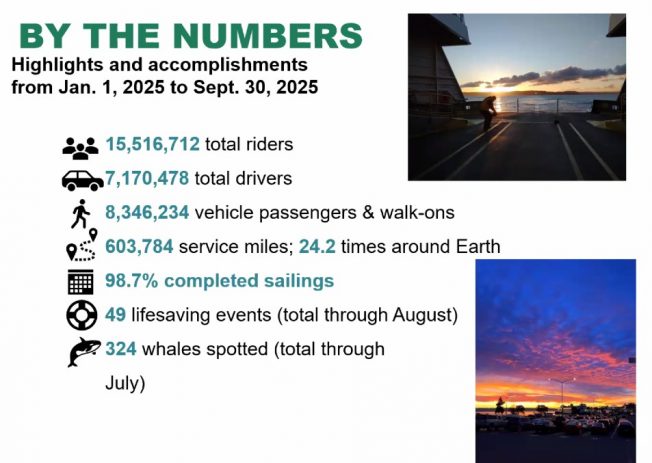
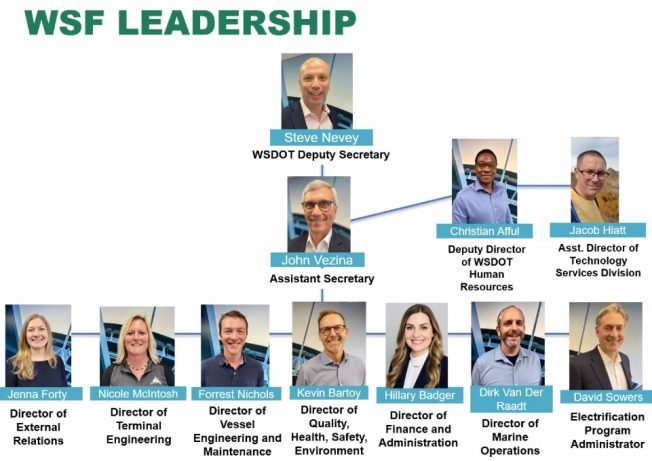
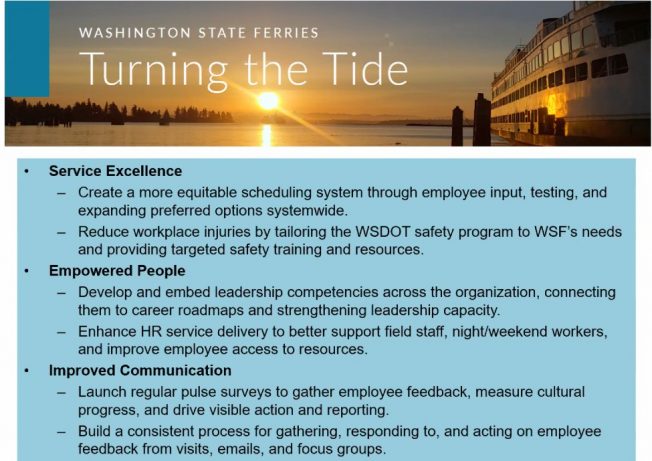
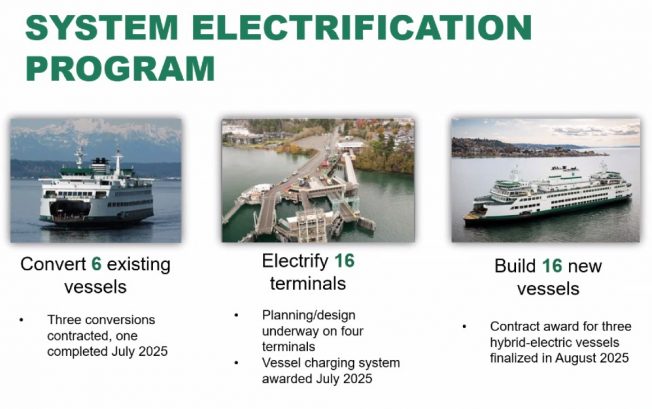
| 4 COMMENTS